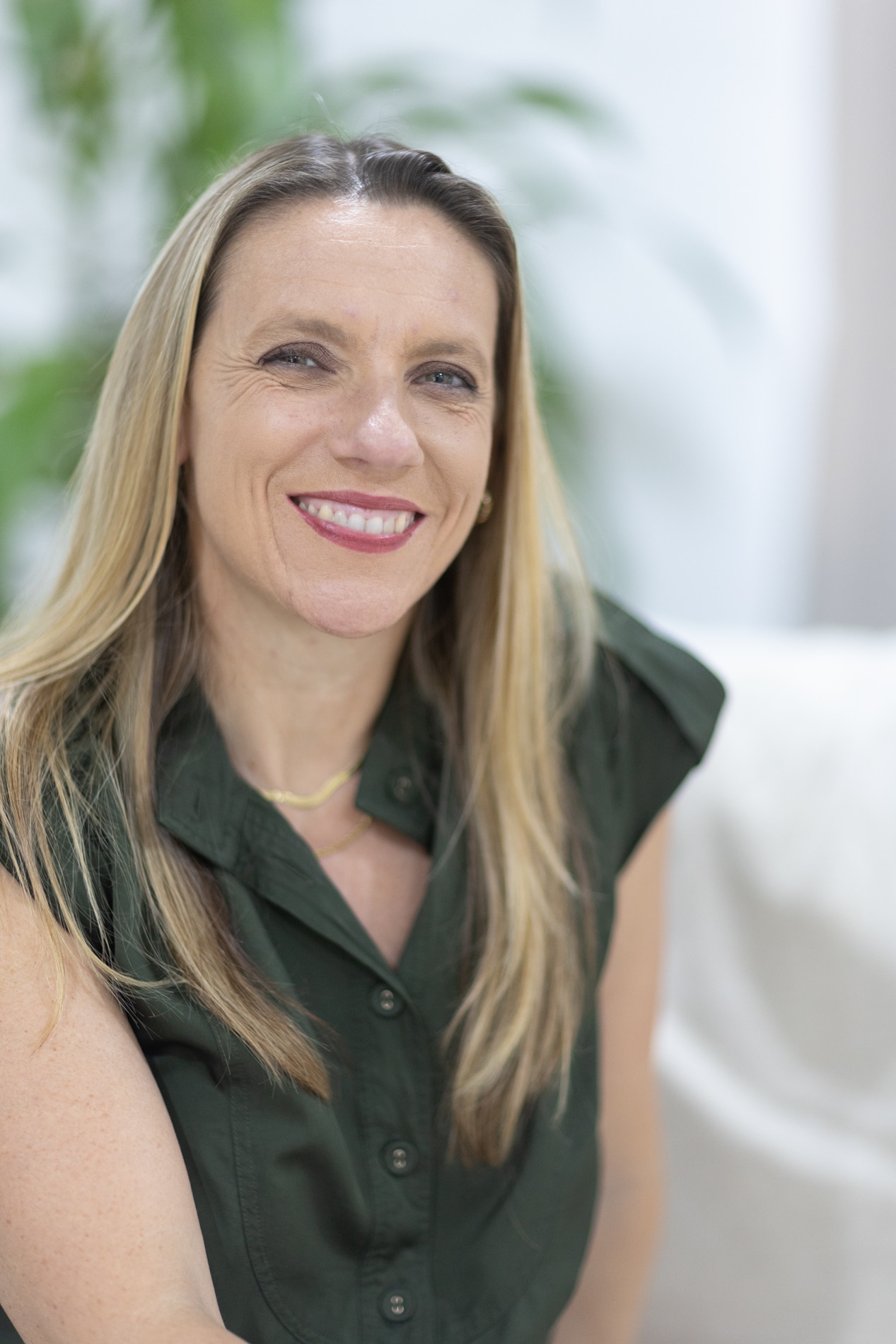Meet Barbara, our PSC Mascot fictional character who represents a collection of thoughts, feelings, and personal growth that combines the collective wisdom of past participants’ lived experiences, our extensive program experience, and shared client stories.
Many parents, like Barbara, have a full range of emotions including relief, overwhelm and worry when their child is first diagnosed.
It’s important to remember that this portrayal does not represent all parents, nor does it represent all aspects of raising an autistic child. There are many, many positive and uplifting aspects that aren’t represented in this article.
Here we share her experience:
She knew from the time her son was born that he was different to her other two children, but she couldn’t quite put her finger on why.
All she knew was that he had many different behaviours and quirks to her friends’ children and her other children, and sometimes he would find things really difficult and react in aggressive or challenging ways that made Barbara feel out of control, because the usual ‘tried and tested’ parenting strategies wouldn’t work for him.
Getting the diagnosis was both a shock and a relief to Barbara. She was shocked by how she interpreted the severity of the label as she was being told about all the deficits in her son’s cognitive and physical abilities due to the ‘disorder’ and she was overwhelmed with all the challenges she predicted she would be facing for many, many years to come.
She was worried that she wouldn’t be able to face those challenges in the way her son needed her to. She was worried for her son’s life, fearing he was not going to experience a good life, only a limited painful one with no love or connection with others.
But on the other hand, she was also relieved. Suddenly her son’s behaviours all these years made sense. There was a reason for the behaviours. She could start to work with the reality of the way her son’s brain developed and she knew there were lots of strategies and support services that could finally help her and her son to work on some of the challenges they were experiencing.
After the initial diagnosis, it didn’t take long for Barbara to feel completely overwhelmed.
“Where do I start? What do I need to do now? There’s so much support I need to organise. There’s so much I need to learn. How do I manage my other children and make sure they are given adequate attention while my child is getting the support he needs? Will they feel like I favour my son because I have to do so much for him? Where am I going to find time for me and my career? Should I quit work? What’s going to be the right way to handle his tantrums now? How do I even know if it’s a tantrum or a meltdown? And how do I manage it differently if it’s one or the other? What are other people going to say when they know? Are people going to ostracise us or treat us differently?”
Barbara’s mind was working overtime, playing out endless possibilities of what could happen and stacking that on top of her already busy life. Now that she knew a little bit more about autism, she also started to feel guilty about her previous parenting approaches.
“How could I have not known about this? Why did I miss the signs? All this time I was treating him like he was being naughty. Have I damaged him trying to get him to follow rules that were hurting him? Have I contributed to life being even worse for him? I should have known better.”
And then there were the times when Barbara did know how to support her son because she had learnt techniques to communicate effectively with him, but she didn’t use them. Her emotions had overwhelmed her, and she had reacted poorly. She would sometimes get angry and yell, throw things around in her anger and have her own tantrums. She would ‘stack until she cracked’ and fall apart in tears afterwards. Then would come the guilt.
“I should have been calmer. I knew I needed to handle that better, but I didn’t. I’m such a bad mum. I’m so hopeless and useless at being this child’s mother. Other parents would be handling things so much better than me.”
Then the sorrow and the grief would arise once again.
“Why did this happen to me? It’s not fair. I never thought parenting was going to be like this. My family was supposed to be happy, healthy, and normal. What did I do to deserve this life? There’s so much I’m going to miss out on. There is so much my other kids are missing out on because we can’t go to many places. That’s not fair on them. It’s not fair on any of us. I just can’t connect with him the way I want to. I’m ashamed to admit that I struggle to even like him sometimes. Oh my gosh, that makes me such a horrible person to think like this, but he just makes my life so hard. I don’t know how to feel any other way. I don’t want to feel this way. I hate autism.”
What Barbara hated even more was having thoughts like this, especially about her son who she did love, but just struggled to connect with. Of course, she would never, ever admit to anyone that she had these thoughts.
These thoughts felt very shameful to Barbara. She felt like the worst parent in the world because she sometimes wished she had a different life where autism wasn’t a part of it.
She couldn’t believe that she would think such horrid things and tried as often as she could to shut them out and continue trying to bond with her son, but sometimes she couldn’t help it. She just felt like she was sacrificing so much.
And what also didn’t help was the extreme loneliness Barbara felt too. It was like nobody understood her anymore. It felt like everyone had disappeared off the face of the earth. No one called her anymore. No one invited the family anywhere. It was all so hard to go anywhere without drawing attention to themselves with her son’s autistic characteristics like the sensory overload that would make him meltdown, or the stimming that would be obvious.
People didn’t know how to act around her anymore, so they just started to drop like flies one by one.
Barbara felt like there was no one she could turn to, and if she was being completely honest with herself, she sometimes even felt embarrassed to be in public with her son because of the judgemental looks, stares and sneers she often received.
She felt embarrassed for her son. She felt embarrassed to be with her son and then she felt shame for feeling embarrassed about her son.
“I shouldn’t be feeling this way. I am his mother. I should be loving him unconditionally. It’s just so hard!”
Barbara also felt like she was under constant scrutiny. Not just by strangers, but family too. Everyone seemed to have an opinion on mistakes they thought she was making with her son and how she should be doing things differently.
She was constantly torn between the typical and accepted way of parenting, and a way of parenting she felt her son needed. She constantly argued with herself about the quality of her own parenting when things didn’t work the way they typically would, and she was forever feeling like she wasn’t able to control her son.
She was at a loss. All these emotions. All these questions. So much self-doubt swimming around her every day.
If you feel like Barbara, you are not alone. The Parental Stress Centre is a safe place to learn and grow, no matter where you are in your Autism journey. We get you :)





